Two things in life are unavoidable: death and taxes. However, while avoiding your personal taxes altogether isn’t possible, there are ways of avoiding them in the world of real estate. Particularly handy is the 1031 exchange, a transaction that allows you to defer capital gains taxes in the sale of certain kinds of property. Overall, the 1031 exchange is a great way to build wealth but, in order to do so, it’s important to familiarize yourself with the transaction’s basic rules.
1031 Exchange: The Basics
Before we start discussing the benefits of the 1031 exchange, it’s necessary to understand exactly what this transaction entails.
In simplest terms, a 1031 exchange applies to transactions in which you sell and then buy properties of like kind within a specified window of time. The term “properties of like kind” might seem formidably ambiguous, but it basically refers to real estate that is NOT your personal residence. Therefore, you could swap a parcel of undeveloped land for wealth-producing commercial real estate, or you could exchange business property for business property. Many different combinations exist, but the bottom line is that a 1031 exchange deals with investment or business property, and your personal residence can’t be involved. There are certain instances where part-time vacation rentals apply, but it’s important to get professional advice in these instances, as restrictions regarding vacation homes are particularly stringent. For instance, you are not allowed to live in your vacation property for the first two years of ownership. Additionally, you must rent it out for a minimum of 14 days out of the year, and you cannot live in the home for more than 14 days in each year.
There is also another option for avoiding capital gains on your primary residence: with a 121 exclusion, you can sell property used as your residence for at least 24 months out of the last 60 months and exclude up to $250,000 in capital gains if you’re single, or $500,000 if you’re married and filing jointly, from your taxable income. This process is complicated, however, and so it’s important to get help from a professional when working through the 121 exclusion.
1031 Exchange: The Timeline
Following the sale of your first property, a few things need to happen. First, it’s important that you don’t actually touch the cash, so most people use an intermediary or middleman to hold the proceeds until it can be used for the purchase end of the swap. Second, your down payment on the new property MUST be equal to or greater than your net proceeds from the sale of your first property. If your down payment is less than your net gain, you’ll have cash left over from the transaction, and this cash will be taxed.
Timing here is very important. You need to identify the replacement property within 45 days of your sale (more realistically, you’re going to want to identify the property earlier than that, at least by the 44th day). Also, you need to close on the purchase of your replacement property at least 180 days after the sale of your initial property. Adhering to this timeline is imperative if you want to qualify for the 1031.
In a nutshell, a 1031 exchange is the process of swapping one investment or business property for another similar property of equal or greater value within a very specific timeline.
1031 Exchange: The Benefits
The basic benefits of the 1031 are pretty easy to understand: by adhering to the guidelines of a 1031 exchange, you avoid paying capital gains taxes.
And it keeps getting better: a 1031 exchange allows you to steadily increase the value of your investment properties, which accordingly leads to an increase in wealth. The best part is that there is no limit to the number of times you can complete a 1031 transaction. Many individuals make the exchange for many years, steadily increasing the value of their investments. Then, after you’ve built up enough of a profit, you can sell your property for cash and pay only a single tax on your capital gain. Or, if you prefer, you can continue the cycle and avoid paying taxes altogether.
It’s also worth mentioning that combining a 121 with a 1031 is a great wealth-building strategy. Say, for instance, you move away from your primary residence and take advantage of a 121. Then, you transform the property into a rental. If you rent the property for a minimum of 2 years, then the property is an investment property, and it can qualify for the 1031 exchange when you choose to sell it. This trick is a savvy way to take advantage of numerous tax breaks at once.
It’s important that you enlist the help of trained professionals to navigate the 1031 exchange. You’ll need the help of a tax advisor, a 1031 exchange coordinator, a knowledgeable lender, and an agent. While enlisting an army of professionals might initially seem like overkill, it’s actually a vital part of the process. The 1031 exchange is rewarding but complicated, and it requires in-depth tax and financial knowledge that only professionals possess.
For help closing your 1031 exchange, contact Pickett Street at (425) 502-5397 or info@pickettstreet.com, or contact Cody Touchette, MLO # 83216, Pickett Street’s preferred lender.
Watch out for our upcoming 1031 class for Pickett Street clients on August 3, 2016!
Sources:
http://www.pmcresa.com/pmcresa/about/articles/Pages/1031-Like-Kind-Exchange.aspx
https://www.orexco1031.com/Benefits.aspx
http://www.exeter1031.com/article_overview_1031_121_combination.aspx
